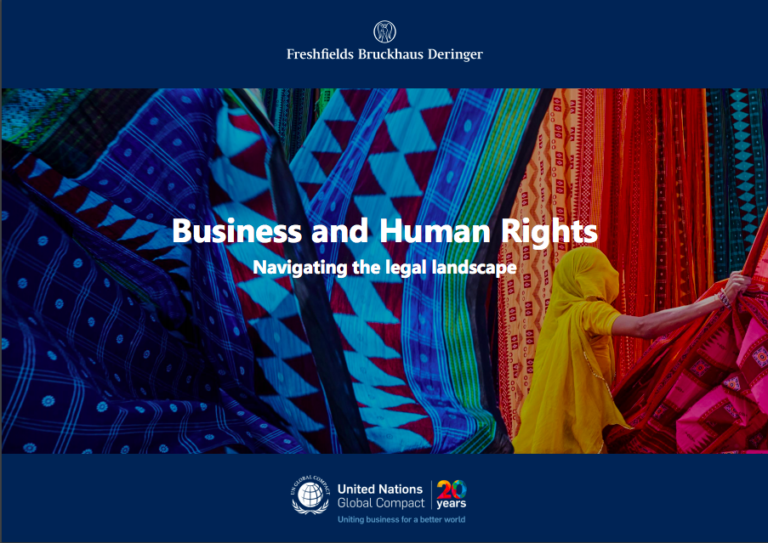Rapid change in the legal landscape for business with regards to human rights has profound implications for how businesses across the globe approach human rights issues. Multinational companies are having to navigate increasingly complex human rights obligations whether by identifying human rights risk in their supply chains through due diligence, taking steps to mitigate such risks or making public disclosures. This report aims to provide guidance on this evolving legal landscape and the consequent legal human rights considerations that apply to multinational companies. The audience for this report includes but is not limited to lawyers. This topic matters to corporate general counsel as well as executives tasked with embedding sustainability and human rights considerations in their business strategy; finance directors, who face increased scrutiny on environmental, social and governance indicators from their key shareholders; and operational and procurement teams, who must consider how to adapt their approach to reflect new forms of risk potentially affecting business operations and supply chains.
The report was developed by Freshfields Bruckhaus Deringer LLP, with input from the participants of the United Nations Global Compact Decent Work in Global Supply Chains Action Platform.

